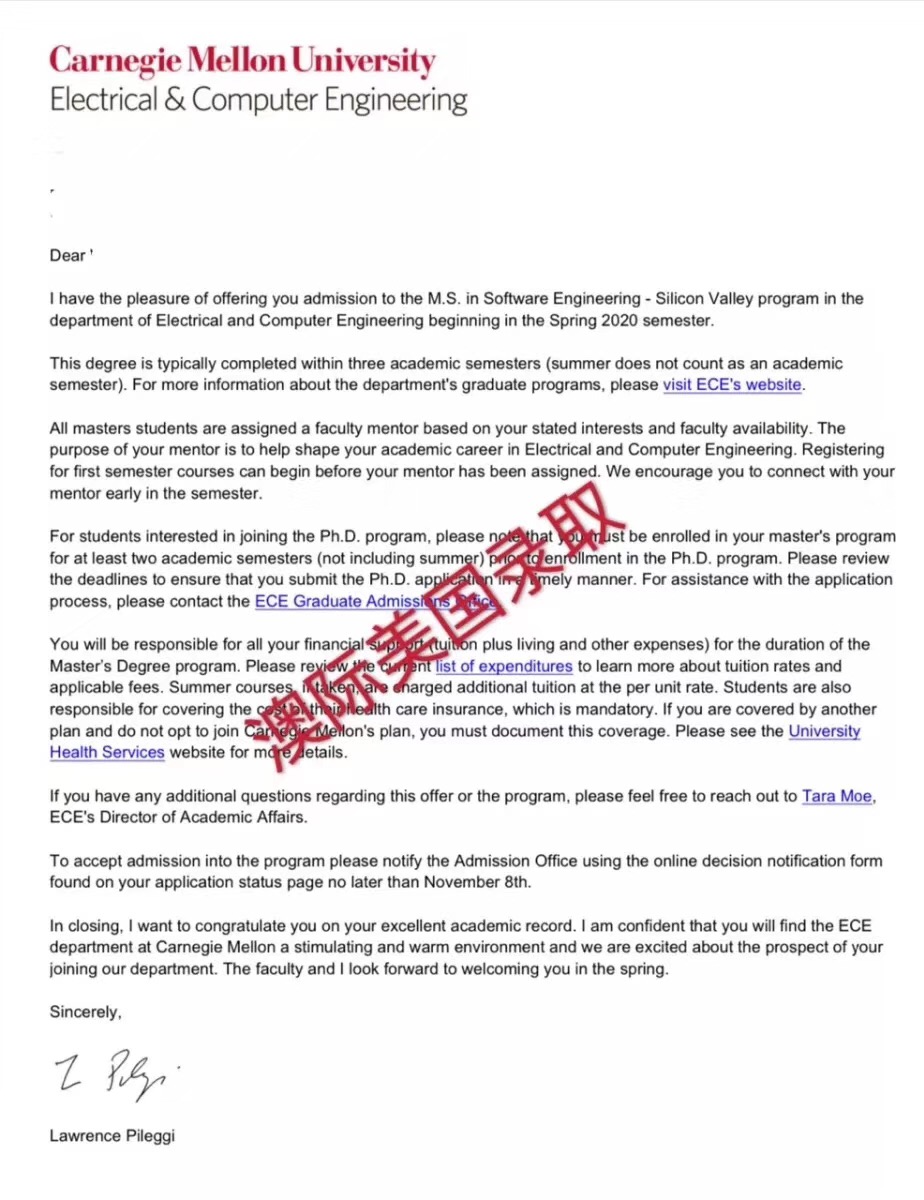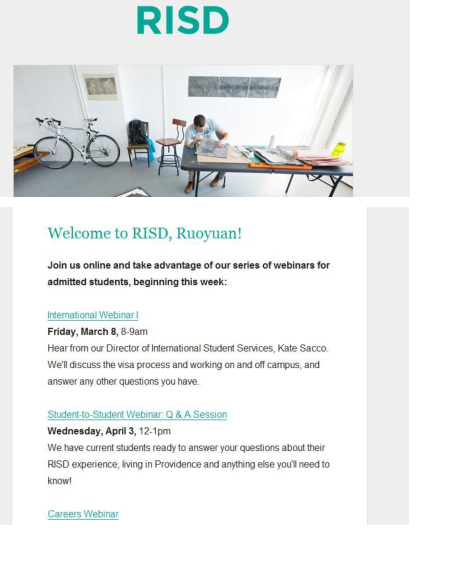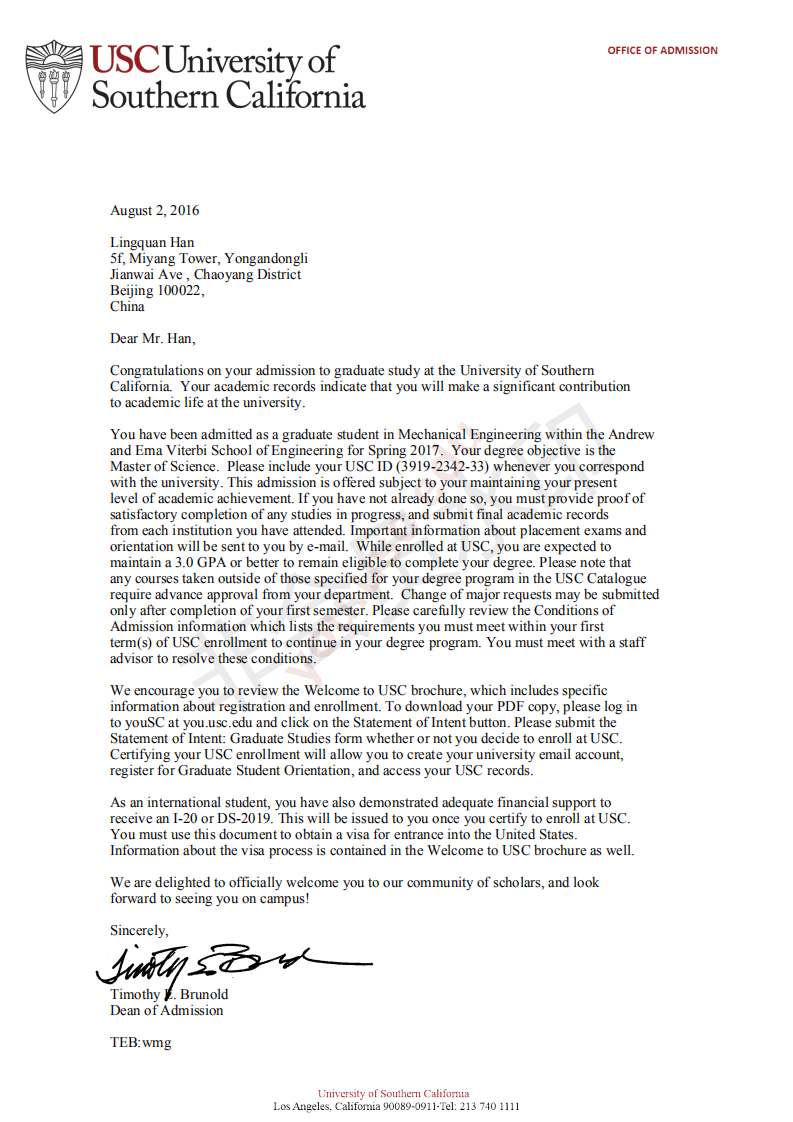Revising
2017-03-27 62阅读
Now that you written a first draft and set it aside for a few days, you are [b]ready to go back and start revising it. Later you may be asking other [b]people, such as friends or teachers, to read your essays and offer their [b]comments and suggestions. [b][b]The first step in revising is to re-read your essay. The first time that [b]you re-read your essay, do not mark any corrections on it. Reading the [b]essay uninterrupted will help you understand how your essay fits together. [b][b]In subsequent readings, read to revise. When you read for the purpose of [b]revising, you should read from a particular point of view -- the reader's. [b]Imagine that you are reading an essay written by a stranger. Be critical in [b]asking yourself questions about your essay. [b][b]There are many elements of your essay to focus on when revising. You can [b]examine your essay as a whole, or as whole paragraphs, to revise items like [b]theme, structure, and general content. Bob calls these items, "big picture [b]items." You can also examine your essay on the sentence or word level, [b]focusing on details like spelling, grammar, and diction. Bob calls these [b]details, "little picture details." Check out Bob's revision tips for more [b]on revising. [b][b]Revision Tips: Big Picture Items [b][b]"Big picture items" are elements of the essay that involve the entire essay [b]as a unit, or entire paragraphs. When revising your essay your should first [b]consider these big picture items bore considering things such as grammar, [b]spelling, and word choice. [b][b]Big Picture Points to Consider [b][b]A. Theme and Topics [b]1、Does the essay answer the essay question completely? [b]2、Does the essay describe you accurately and completely? [b]3、Does the essay have a clear and consistant main point? Are all the [b]sections of the essay related to this point? [b][b]B. Support and Specifics [b]1、Are there any important assumptions or background information you do not [b]include that would make your essay easier to understand? [b]2、Do you go into adequate detail on important points, or do you explain [b]each point only superficially? [b][b]C. Organization [b]1、Does the essay have a logical beginning, middle, and end? [b]2、Are the essay's paragraphs organized in a logical sequence? [b] One way to make sure your essay follows a logical order is to read the [b]essay again, write a one sentence summary for each paragraph, and then [b]check to see if the sentence summaries you have written follow a clear [b]order. [b]3、Is the essay written as one coherent piece of writing or several [b]unrelated sections? [b] An essay should not be organized as separate sections introduced with [b]individual titles (for examples, dividing your essay into the separate [b]sections "My Family," "Educational Background," "Extracurricular [b]Experiences," "Work Experiences," "Career Goals," etc.). [b]. [b]Revision Tips: Little Picture Details [b][b]After you have evaluated your essay's big picture items, it is time to take [b]a look at the essay on a sentence and word level. Below are Bob's tips for [b]revising the "little picture details." [b][b]Tips on Content/Subject: [b][b]1、Remove any facts or specifics that can be found in other parts of your [b]application, such as your transcript or resume. You can rer the reader to [b]other parts of your application by including parenthetical comments in your [b]essay, such as "(see resume)" or "(see essay #2)." [b]2、Remove any criticism of previous professors, classmates, schools, or [b]programs with which you have been involved. [b]3、Remove sexist or racist language. [b]4、Revise any blatant self-promotion, for example "I am not only an [b]outstanding student, but also one of the most generous and giving [b]individuals in my entire university." Detail specific examples and [b]experiences which reveal your positive traits. [b]5、Remove sentences that begin with "I have always wanted to be..." Do not [b]write about how your interest in your field of study began when you were a [b]small child. [b]6、Remove empty praises of the school for which you are writing the essay. [b]If you complement a school in a such a general way that you could praise [b]every other school you are applying to the same way, your compliments will [b]be taken by the schools as insincere. [b]7、Avoid writing with a pessimistic or depressed tone. [b][b]Other Tips: [b]1、Be extremely carul when using modifiers, words like beautiful, [b]wonderful, interesting, challenging, regarding, excellent, and meaningful. [b]Instead of using such common adjectives, describe your experiences as they [b]actually happened. [b]2、Use transition words like furthermore, thus, additionally, and however, [b]to move from paragraph to paragraph and sentence to sentence. [b]3、Remove qualifiers like somewhat, partially, possibly, quite, and rather. [b]Qualifiers make the writer seem unsure and unconfident. [b]4、Try to make your sentences as concise as possible. Remove needless words. [b]5、Use a thesaurus to replace overused adjectives. Make sure to pick [b]appropriate synonyms. [b]6、Make sure there are no misspelled words [b]7、Avoid using quotation marks to highlight "adjectives." Quotation marks [b]should only be used to note dialogue. If you are using quotation marks to [b]surround adjectives it means the adjective you chose does not match your [b]intended meaning. Check a dictionary or thesaurus to find a more precise [b]adjective to use. [b][b]And Finally: [b][b]Make sure you personally understand every word in your essay [b][b]Tips for Writing Business School Essays [b][b]Business schools often consider application essays a more important part of [b]the application than other graduate programs. This is because business [b]schools believe that job performance and job experience, which are [b]described in application essays, are a better indicator of an applicant's [b]business potential than academic achievement. In writing business school [b]essays you should not only give an accurate, detailed description of [b]yourself but also demonstrate an understanding of some part of the business [b]world (e.g., banking, manufacturing, marketing, or consulting). [b][b]Here are some tips on answering the most common types of business school [b]application essays. [b][b]The Achievement Essay: [b][b]"What do you consider to have been your single most important achievement [b]to date?" [b][b]Describe the problem you faced, the steps you took to deal with it, and how [b]you solved it. The importance of your achievement is not all that [b]important. What is important is revealing how you deal with challenging [b]situations. In your answer try to show that you have creativity, initiative [b]and focus. [b][b]The Extracurricular Activity Essay: [b][b]"Describe the non-professional activities you enjoy." [b][b]This is not a trick question. You do not need to describe only hobbies that [b]are business related. Admissions committees care about what you enjoy [b]outside of work because they want to know that you are a likable person who [b]will fit into their school's student body. [b][b]The Character Essay: [b][b]"What do you consider your best character traits? Which traits would you [b]most like to change" [b][b]You do not have to answer this question completely honestly. For good [b]traits, try to show that you possess traits that will help you do well in [b]an M.B.A. program, such as the ability to work with others, the ability to [b]self-motivate, or strong analytical skills. [b][b]As for weaknesses, do not mention character weaknesses such as dishonesty [b]or greed. Rather, discuss weaknesses that can be strengths in disguise, [b]such as being too details-oriented or too curious. Because many applicants [b]will probably mention the same strengths and weaknesses as you, be sure to [b]provide specific supporting evidence. [b][b]The M.B.A. and Career Goals Essay: [b][b]"Why do you want to pursuean M.B.A.? What are your short and long-term [b]career goals?" [b][b]There are many strong applicants competing with you to be accepted. You [b]need to show the admissions committee why you need an M.B.A. and how you [b]will use it. If studying business represents a big career change or is [b]unrelated to what you studied in college, Try to make pursuing an M.B.A. [b]seem compatible with your interests and skills. Your career goals do no [b]have to be overly ambitious. Modest career goals are fine too. If you do [b]have very ambitious goals, you should also have a realistic plan for [b]attaining them. [b][b]The Work Experience Essay: [b][b]"Describe a significant managerial or other work experience." [b][b]Remember, your complete work history is already detailed on your resume, so [b]you do not have to restate it when writing this essay. Do not just write a [b]detailed account of all your work responsibilities, but instead focus on [b]one specific project. Try to write about an experience that reveals [b]character strengths or other positives. [b][b]The Ethical Essay: [b][b]"Describe an ethical dilemma that you have personally encountered. What [b]alternatives did you consider and why?" [b][b]The admissions committee is asking you to prove to that you will be an [b]upright and moral student and business professional. There is no need to [b]praise yourself too much, you can be modest here. Do not describe problems [b]that you caused yourself. If you have not had much work experience, write [b]about a school experience. [b][b]Tips for Writing Law School Essays [b][b]In evaluating application essays, law school admissions officers pay [b]attention both to what you write and to how you write. In terms of content, [b]what you write, the essay should provide another dimension to your [b]application. It should make you stand out and reveal something not already [b]detailed in your application. Do not just recapitulate your grades and LSAT [b]score. Instead, try to write something that can provide evidence you [b]possess the potential to become a successful lawyer. Being a lawyer [b]requires strong morals, attention to details, and the ability to cope with [b]long periods of monotony and boredom. [b][b]Lawyers generally write a lot and so they need to be able to write clearly [b]and concisely. If you are unsure how to write your essay, the simpler the [b]better. Finally, although some schools do not place a specific limit on the [b]length of the personal statement, do not write more than three double- [b]spaced pages. Most of the time two pages is enough. [b][b]Getting Outside Opinions on Your Essay [b][b]After you feel comfortable with your essay you should show it to a few [b]people whose opinions you respect. These might be friends, classmates, or [b]teachers. If you can, you should also ask for help from a native speaker of [b]English, since he should at least be able to help correct essay grammar. [b]Do not be afraid of your readers' criticisms. After all, you should know [b]your essay's weak points so you can fix them. [b][b]Listen to outside suggestions and consider them, but do not automatically [b]accept them. Remember that this is your essay. You should use your own [b]judgment in deciding how to revise it. [b]立即咨询
留学咨询
更多出国留学最新动态,敬请关注澳际教育手机端网站,并可拨打咨询热线:400-601-0022
留学热搜
相关推荐
- 专家推荐
- 成功案例
- 博文推荐

Copyright 2000 - 2020 北京澳际教育咨询有限公司
www.aoji.cn All Rights Reserved | 京ICP证050284号
总部地址:北京市东城区 灯市口大街33号 国中商业大厦2-3层









高国强 向我咨询
行业年龄 11年
成功案例 2937人
留学关乎到一个家庭的期望以及一个学生的未来,作为一名留学规划导师,我一直坚信最基本且最重要的品质是认真负责的态度。基于对学生和家长认真负责的原则,结合丰富的申请经验,更有效地帮助学生清晰未来发展方向,顺利进入理想院校。
陈瑶A 向我咨询
行业年龄 15年
成功案例 4612人
拥有大量高端成功案例。为美国哈佛大学、宾夕法尼亚大学等世界一流名校输送大批优秀人才。
齐亚楠 向我咨询
行业年龄 13年
成功案例 3536人
商科案例有哥伦比亚大学等,工科案例有麻省理工大学等,艺术案例有罗德岛大学等。
李君君 向我咨询
行业年龄 13年
成功案例 3623人
成功案例涉及美国排名前60的院校,专业涵盖商科(金融,会计,管理),工科(生物工程,化学工程,计算机科学,电气工程)等热门领域。